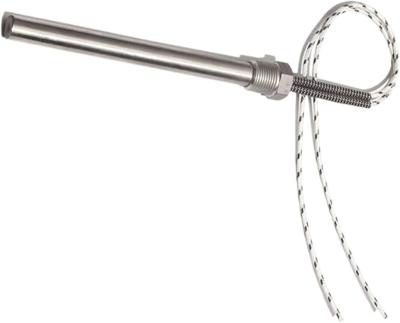Categories
Tags
Archives
Threaded Cartridge Heater Buying Guide: What You Need to Know
-
When it comes to heating solutions in industrial applications, threaded cartridge heater a popular choice due to their efficiency and versatility. These heaters are designed to provide precise heating in various processes, making them invaluable in many sectors, including manufacturing, food processing, and plastics. If you're considering purchasing a threaded cartridge heater, this guide will help you understand their features, applications, and what to look for to make an informed decision.
What is a Threaded Cartridge Heater?
A threaded cartridge heater is a type of electric heater that consists of a metal sheath containing a heating element. The heater is designed with a threaded end, allowing it to be easily installed into a heated block, mold, or machine. This design provides excellent thermal conductivity and ensures even heating across the surface, making it suitable for applications requiring precise temperature control.
Key Features of Threaded Cartridge Heaters
-
Construction Materials: Most threaded cartridge heaters are made from stainless steel or other durable metals that resist corrosion and wear. The choice of material can affect the heater's lifespan and performance.
-
Watt Density: This refers to the amount of power the heater delivers per unit area. Higher watt densities can lead to faster heating but may also increase the risk of overheating. It’s essential to choose a watt density that matches your application’s requirements.
-
Voltage Ratings: Threaded cartridge heaters come in various voltage ratings, typically ranging from 120V to 480V. Ensure that the voltage rating is compatible with your power supply.
-
Thermal Response: The ability of the heater to reach the desired temperature quickly is vital. Look for models that offer a fast thermal response, especially for processes requiring quick heating cycles.
-
Mounting Options: Most threaded cartridge heaters feature standard thread sizes, making them compatible with various fixtures. However, always verify that the dimensions match your specific application.
Applications of Threaded Cartridge Heaters
Threaded cartridge heaters are utilized across a wide range of industries due to their adaptability. Here are some common applications:
- Plastics Processing: Used in injection molding and extrusion processes to maintain specific temperatures in molds and barrels.
- Food and Beverage: Applied in equipment like food warmers and packaging machines where temperature control is crucial.
- Packaging: Essential for heating seal bars in packaging machines to ensure secure seals on plastic films.
- Chemical Processing: Employed in reactors and tanks to maintain temperatures for chemical reactions.

Factors to Consider When Buying a Threaded Cartridge Heater
When purchasing a threaded cartridge heater, there are several key factors to keep in mind:
1. Application Requirements
Identify the specific needs of your application. Consider the required temperature range, wattage, and any environmental factors, such as exposure to moisture or corrosive substances.
2. Heater Length and Diameter
Choose the correct length and diameter for your heater. These dimensions will depend on the installation space and the heating requirements of your process. A properly sized heater ensures optimal performance and efficiency.
3. Watt Density and Power Rating
Determine the appropriate watt density based on your heating needs. If you require rapid heating, a higher watt density may be necessary, but balance this with the risk of overheating. Ensure the total power rating aligns with your power supply capabilities.
4. Control and Regulation
Consider whether you will need a temperature control system to manage the heater’s operation. Some heaters come with integrated thermocouples or thermistors for temperature feedback, which can enhance control and efficiency.
5. Quality and Durability
Look for reputable manufacturers known for producing high-quality threaded cartridge heaters. Check for certifications and reviews that speak to the durability and reliability of their products.
6. Budget
While it’s tempting to go for the cheapest option, remember that quality often correlates with price. Invest in a heater that meets your needs and offers good performance to avoid frequent replacements or repairs.
Maintenance Tips for Threaded Cartridge Heaters
To ensure the longevity and efficiency of your threaded cartridge heater, regular maintenance is essential. Here are some tips:
- Inspect Regularly: Check for signs of wear or damage. Regular inspections can help identify potential issues before they become significant problems.
- Clean the Heater: Keep the heating element and surrounding area clean to prevent buildup that can hinder performance.
- Monitor Performance: Keep an eye on temperature fluctuations and response times. Any irregularities could indicate a need for maintenance or replacement.
Conclusion
Threaded cartridge heaters are a versatile and efficient heating solution suitable for a variety of industrial applications. By understanding their features, applications, and critical buying factors, you can make an informed decision when selecting the right heater for your needs. Always consider the specifics of your application, including watt density, size, and material compatibility, to ensure optimal performance.
-
